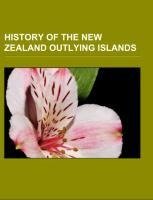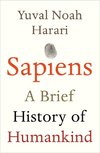
-
 Anglický jazyk
Anglický jazyk
History of the New Zealand outlying islands
Autor: Source: Wikipedia
Source: Wikipedia. Pages: 23. Chapters: Moriori, Shipwrecks of the Auckland Islands, Moriori people, History of Chatham Islands numismatics, 1907 Sub-Antarctic Islands Scientific Expedition, Grafton, General Grant, Dundonald, Invercauld, Compadre, Cape Expedition,... Viac o knihe
Na objednávku, dodanie 2-4 týždne
13.95 €
bežná cena: 15.50 €
O knihe
Source: Wikipedia. Pages: 23. Chapters: Moriori, Shipwrecks of the Auckland Islands, Moriori people, History of Chatham Islands numismatics, 1907 Sub-Antarctic Islands Scientific Expedition, Grafton, General Grant, Dundonald, Invercauld, Compadre, Cape Expedition, William Robert Broughton, Charles Enderby, Derry Castle, Moriori language, SS Elingamite, JM Barker Historic Reserve, Anjou, Hardwicke, New Zealand, Tommy Solomon, Campbell Island sheep, Enderby Island Cattle, Southern Whale Fishery Company, Auckland Island Pig, Frederick Hasselborough, Port Ross, Auckland Island Goat, Enderby Island Rabbit, Campbell Island Cattle, Dendroglyph, Minerva, Torotoro. Excerpt: Moriori are the indigenous people of the Chatham Islands (Rekohu in Moriori, Wharekauri in Maori), east of the New Zealand archipelago in the Pacific Ocean. These people lived by a code of non-violence and passive resistance (see Nunuku-whenua), which led to their near-extinction at the hands of Taranaki Maori invaders in the 1830s. The Chatham Islands from space. Chatham Island is the largest, Pitt Island is the second largest, and South East Island is the small island to the right of PittDuring the early 20th century it was commonly believed that the Moriori were pre-Maori settlers of New Zealand, linguistically and genetically different from the Maori, and possibly Melanesian. This story, incorporated into Stephenson Percy Smith's "Great Fleet" hypothesis, was widely believed during the early 20th century. However the hypothesis was not always accepted, see 1904 paper by A. Shand on The Early History of the Morioris. By the late 20th century the hypothesis that the Moriori were different from the Maori had fallen out of favour amongst archeologists, who believed that the Moriori were Maori who settled on the Chatham Islands in the 16th century. The earlier hypothesis was discredited in the 1960s and 1970s. The Moriori are culturally Polynesian. They developed a distinct Moriori culture in the Chatham Islands as they adapted to local conditions. Although speculation once suggested that they settled the Chatham Islands directly from the tropical Polynesian islands, or even that they were Melanesian in origin, current research indicates that ancestral Moriori were Maori Polynesians who emigrated to the Chatham Islands from New Zealand before 1500. Evidence supporting this theory comes from the characteristics that the Moriori language has in common with the dialect of Maori spoken by the Ngai Tahu tribe of the South Island, and comparisons of the genealogies of Moriori ("hokopapa") and Maori ("whakapapa"). Prevailing wind patterns in the southern Pacific add to the
- Vydavateľstvo: Books LLC, Reference Series
- Rok vydania: 2015
- Formát: Paperback
- Rozmer: 246 x 189 mm
- Jazyk: Anglický jazyk
- ISBN: 9781233128310






 Ruský jazyk
Ruský jazyk 





